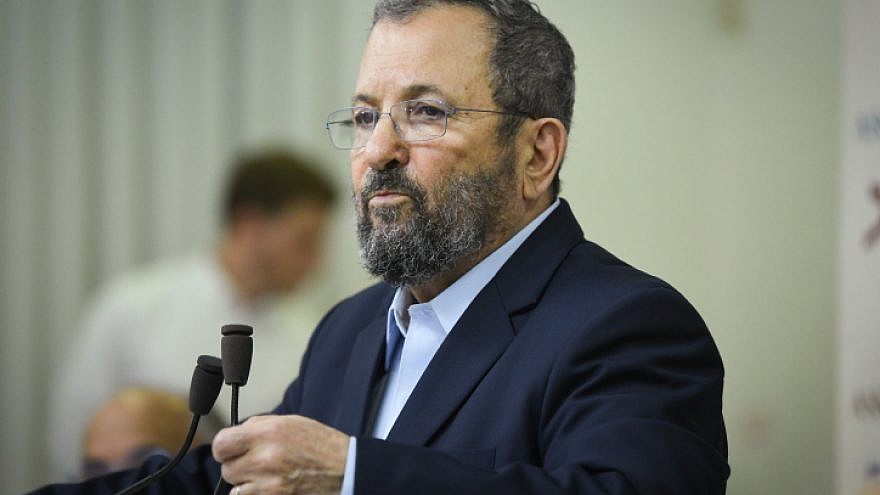The promise implied in the return to politics of Ehud Barak – former chief of staff, prime minister and minister of defense – isn’t likely to materialize. The disclosure about his association with American tycoon Geoffrey Epstein has compromised him, even though there’s no suggestion that he was in any way involved in the latter’s alleged sexual crimes. The Daily Mail article that included a photo showing Barak covering his face as he enters Epstein’s home in New York will affect the Israeli elections.
This may be one reason why Amir Peretz, the new leader of Israel’s Labor Party, says that he won’t combine forces with Barak, a former head of his party, in the September elections. But, having made an alliance with the centrist Gesher Party, and refusing to join forces with the left-wing Meretz, it seems that Peretz’s aim is to move Labor to the political center, which is astounding in view of his own Socialist background. As the center-right is already crowded, Labor is likely to end up in the abyss with Peretz as its undertaker.
The attention is on Ayelet Shaked, the new head of the right-wing party, previously led by Naftali Bennett. It didn’t make it in the April election, but under Shaked it may do well next time. As a secular woman she may attract women and secular voters from Likud and thus come to play an important role in the political future of the country, especially if she succeeds in getting the two other nationalist religious parties to join her.
Prime Minister Binyamin Netanyahu is determined to thwart her attempt. He’s said to have been in touch with Rafi Peretz, the former Chief Rabbi of the Israel Defense Forces and now the leader of one of these nationalist religious parties. Netanyahu is trying to dissuade Peretz from allying himself with Shaked. And Mrs. Netanyahu is reported to have talked to Mrs. Peretz! Both husband and wife are not just fighting for the party but also for his/their political future by seeking to prevent members of Likud from voting for Shaked.
Binyamin Netanyahu has just become the longest serving prime minister of Israel, but he seems to want to continue at least for another term by telling us that if his opponents will come to power, it will lead to war with Iran.
It appears that the politician more important in the next elections than any of the above mentioned is Avigdor Lieberman, the leader of the originally “Russian” Yisrael Beiteinu Party. One of his aims seems to be to keep the ultra-Orthodox and their allies out of the next government. It’s his refusal to serve with them that made it impossible for Netanyahu to form a government after last April’s elections leading to this second round. Lieberman says that he wants the next government to be a coalition between Likud, the Blue and White Party (led by the three generals and Yair Lapid), and, of course, himself.
Though I find it hard to be enthusiastic about anything Lieberman does or says, it’s possible that he may change the course of Israeli politics for the better by helping to shape a government that reflects something of the national consensus and excludes both extremist nationalists and extremist religionists. Though much can happen in the next two months that none of us can predict at this stage, it’s tempting to speculate. Hence the above.
Republished form San Diego Jewish World


























